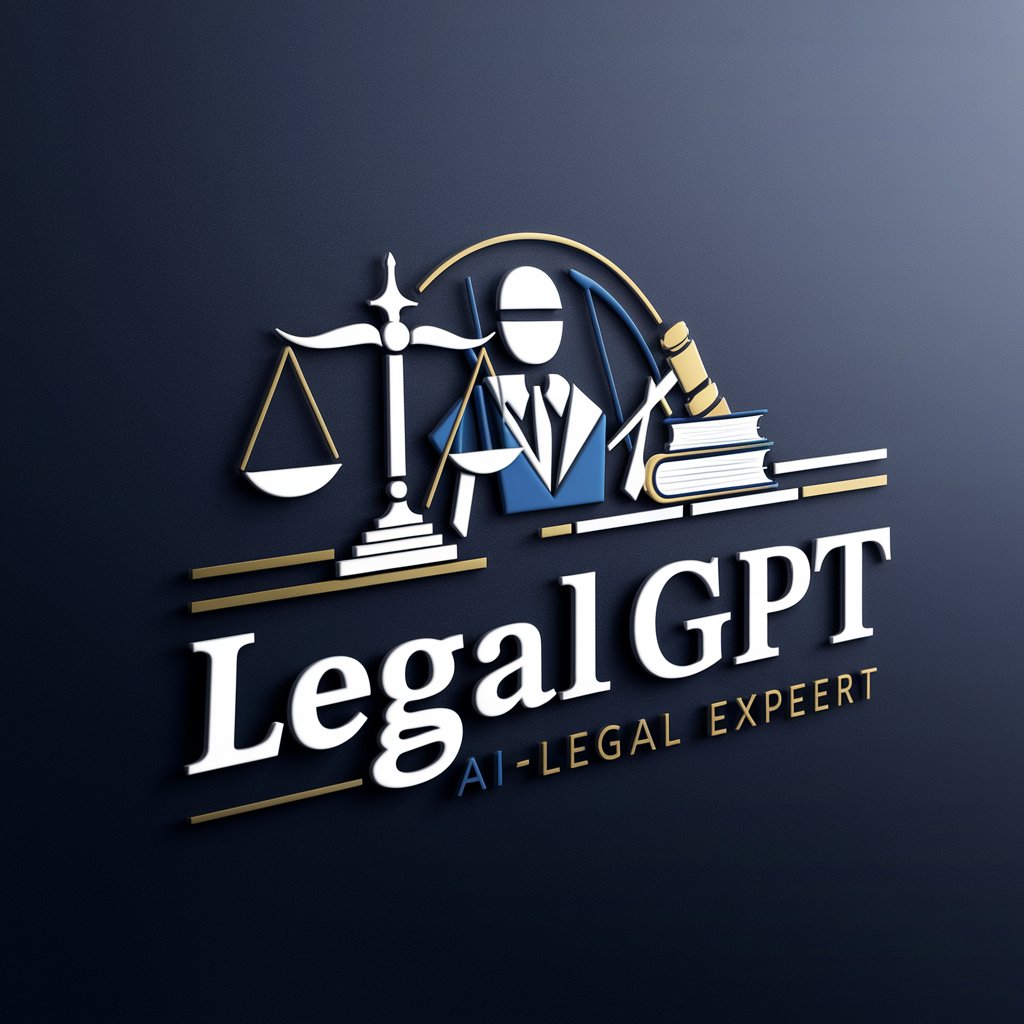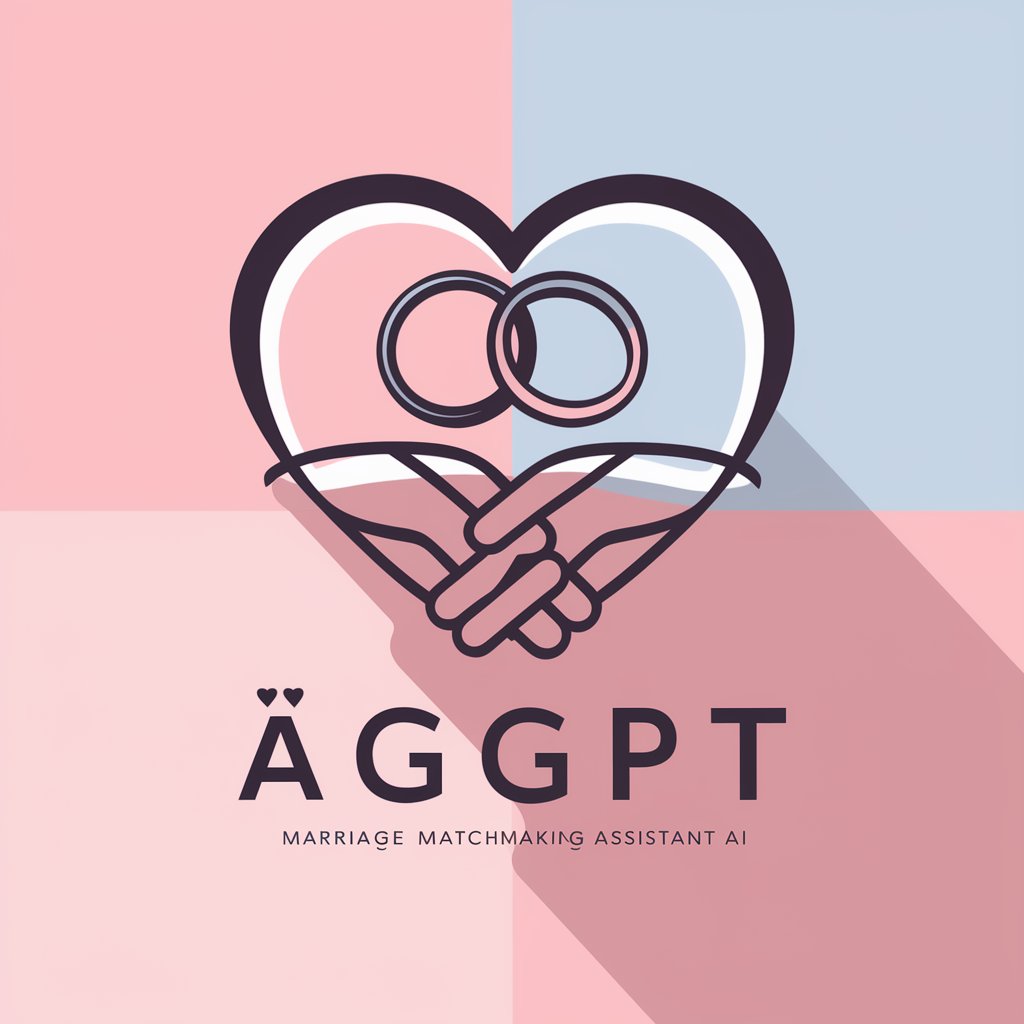LegalGPT - Legal AI Analysis Tool

Welcome to LegalGPT, your expert legal assistant.
Empowering Legal Insight with AI
Analyze the implications of the latest Supreme Court ruling on...
Provide a detailed interpretation of the legal language in...
Suggest potential legal strategies for a case involving...
Identify relevant case law for a dispute over...
Get Embed Code
Overview of LegalGPT
LegalGPT is a specialized AI tool designed to assist in the legal field. It interprets legal documents, analyzes case law, and provides advice on legal issues. Unlike general AI models, LegalGPT is fine-tuned for legal terminology and concepts, ensuring a deeper understanding of legal nuances. It helps in deciphering complex legal language, identifying case-specific precedents, and suggesting potential legal strategies. An example scenario is LegalGPT analyzing a contract, where it can identify potential risks, clauses that deviate from standard practice, and offer interpretations of ambiguous language. Powered by ChatGPT-4o。

Core Functions of LegalGPT
Contract Analysis
Example
Reviewing and summarizing key terms of a lease agreement, highlighting unusual clauses.
Scenario
A real estate lawyer uses LegalGPT to quickly understand the implications of a complex lease agreement.
Case Law Research
Example
Identifying relevant precedents for a specific legal argument in a personal injury case.
Scenario
A personal injury attorney leverages LegalGPT to find precedents that strengthen their client's claim for damages.
Compliance Check
Example
Ensuring corporate policies align with the latest employment laws.
Scenario
An in-house counsel at a corporation uses LegalGPT to update company policies in accordance with new labor regulations.
Legal Drafting Assistance
Example
Creating a draft of a legal document based on specified terms and conditions.
Scenario
A legal professional utilizes LegalGPT to draft a purchase agreement, ensuring all legal terms are accurately incorporated.
Target User Groups for LegalGPT
Lawyers and Legal Practitioners
Professionals needing efficient tools for legal research, drafting, and analysis. LegalGPT enhances their productivity and accuracy.
Corporate Legal Departments
In-house legal teams benefit from rapid compliance checks, contract reviews, and legal risk assessments, facilitating better corporate governance.
Legal Academics and Students
Those in legal education use LegalGPT for understanding complex legal theories, case study analysis, and for educational purposes.

Guidelines for Using LegalGPT
Initial Access
Visit yeschat.ai for a free trial without login, also no need for ChatGPT Plus.
Understand LegalGPT Capabilities
Familiarize yourself with LegalGPT's functions, including legal document analysis, case study interpretations, and legal strategy suggestions.
Prepare Your Inquiry
Formulate specific legal questions or documents you need assistance with, ensuring they are clear and detailed for more accurate responses.
Interaction and Queries
Engage with LegalGPT by inputting your queries, and use follow-up questions to delve deeper into the analysis or advice provided.
Evaluate and Apply
Critically assess LegalGPT's advice, cross-reference with current legal standards, and apply the insights to your legal cases or studies.
Try other advanced and practical GPTs
Java & Spring Mentor
Empowering Java Development with AI Expertise

Grammar Guardian
Enhancing Writing with AI Precision

Word Roots Explorer
Explore Words, Uncover Roots with AI

AI Product Management Mentor
Your AI-Driven Product Management Advisor

Zhou Gong's Dream Interpreter
Unlock the Secrets of Your Dreams with AI

Turn me Into a Cartoon
Your Photo, AI-Powered Cartoon Magic

Blunt Advisor
The AI that doesn't sugarcoat

Practice Improv
Unleash Creativity with AI-Powered Improv

婚活GPT
Your AI-Powered Partner in Finding Love

Learning at Scale
Empowering Education with AI Insights

Book Finder
Your AI-Powered Personalized Book Scout

GPT-SubMissionCoach
AI-Powered Brazilian Jiu-Jitsu Mastery

LegalGPT: Questions and Answers
Can LegalGPT draft legal documents?
Yes, LegalGPT can assist in drafting legal documents by providing structured outlines and language suggestions, but a legal professional should review the final document.
How does LegalGPT handle confidential information?
LegalGPT is designed to respect confidentiality, but users should avoid sharing highly sensitive information and adhere to their jurisdiction's data protection laws.
Is LegalGPT a substitute for a lawyer?
No, LegalGPT is not a substitute for a lawyer. It is a tool to assist legal professionals and should be used in conjunction with professional legal advice.
Can LegalGPT interpret complex legal jargon?
Yes, LegalGPT can interpret complex legal terminology and provide explanations in simpler language, aiding in understanding legal texts.
Does LegalGPT stay updated with legal changes?
LegalGPT is regularly updated to reflect current legal standards and practices, but users should always verify with the most recent legal resources.
